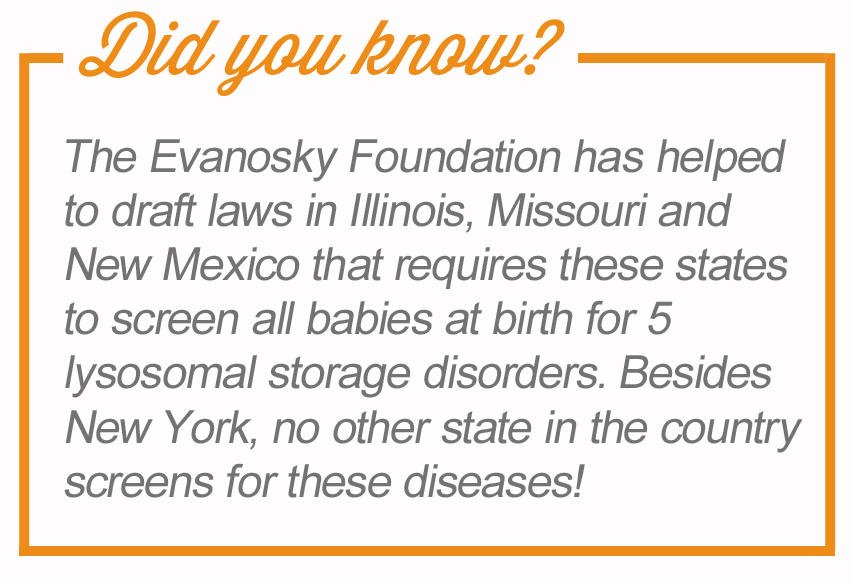Medical Team and Insurance
 Managing your child’s medical care can easily become a full-time job, but it can be easier if you choose a primary care physician who has the ability to be the “leader” of your child’s medical team. The coordination effort helps to make sure that everyone is informed and that the doctor advocates for the proper care both with other doctors and the insurance companies. Members of your team may include:
Managing your child’s medical care can easily become a full-time job, but it can be easier if you choose a primary care physician who has the ability to be the “leader” of your child’s medical team. The coordination effort helps to make sure that everyone is informed and that the doctor advocates for the proper care both with other doctors and the insurance companies. Members of your team may include:
- A primary or family care doctor who is willing to work with you and your family is essential. Because of the medical issues associated with MLD, it is vital to have a doctor who you have a good relationship with and who is familiar with your child and willing to advocate for him or her. You may need to talk to doctors on the phone and interview them to make sure that they are willing to work with your child.
- A physiatrist is a doctor of physical medicine; this person often serves as the “general contractor” for all of the therapy or care that a disabled person receives. However, these doctors are often very busy and carry a high patient load. While a physiatrist is good for discussing various therapies, it is critical to have a strong primary care doctor who can deal with colds, hospitalizations, etc.
- Since MLD primarily affects the nervous system, a neurologist may be involved with your child. Often they do not provide treatment, but may be involved in the initial diagnosis or may be consulted if additional nervous system issues are noted.
- The Evanosky Foundation has helped to draft laws in Illinois, Missouri and New Mexico that requires these states to screen all babies at birth for 5 lysosomal storage disorders. Besides New York, no other state in the country screens for these diseases!
 Therapists who specialize in physical therapy, occupational therapy (fine motor skills) and speech therapy may work with your child, depending upon his or her abilities. These therapists can be consulted to help with proper positioning, determining methods of communication, or other ways of helping your child. Keep in mind that extensive therapy is beneficial for restoring function, but since MLD is a degenerative condition, it may not be possible to restore function (unless a child has undergone treatment such as stem cell transplant) due to damage to the brain or nervous system. However, consulting with therapists can be beneficial to get ideas on how to help your child improve his or her quality of life.
Therapists who specialize in physical therapy, occupational therapy (fine motor skills) and speech therapy may work with your child, depending upon his or her abilities. These therapists can be consulted to help with proper positioning, determining methods of communication, or other ways of helping your child. Keep in mind that extensive therapy is beneficial for restoring function, but since MLD is a degenerative condition, it may not be possible to restore function (unless a child has undergone treatment such as stem cell transplant) due to damage to the brain or nervous system. However, consulting with therapists can be beneficial to get ideas on how to help your child improve his or her quality of life.- Even though your child may be tube fed, visiting a dentist is very important so that no mouth sores or severe dental problems develop. Additionally, if your child is young, a dentist can help to make sure that the baby teeth fall out (or are removed) to avoid impacted teeth or other serious problems.
- An ophthalmologist (eye doctor) or neuro-ophthalmologist (an eye doctor who is also familiar with how the nervous system works) can help to determine your child’s visual capabilities. Because eyes often degrade with MLD children, these doctors can help with glasses or other treatment as needed.
- A pulmonologist is a doctor of the lungs and respiratory system. Because children with MLD are immobile and cannot run around and expand their lungs like other children, they are often susceptible to pneumonia and lung problems. A pulmonologist can assess your child’s lung health and make recommendations for maintaining or improving lung function.
- A gastroenterologist specializes in stomach and digestive issues. This doctor may be involved in placing a G-tube or other type of feeding tube and can be consulted for vomiting or reflux concerns.
Insurance
In addition to private insurance, some other insurance options may be available:
- A pediatric hospice service can provide medication, tube feeding formula, or other services. Depending on your state or insurance company, the insurance company may pay the hospice a flat amount per month for these services. To qualify for hospice, generally the insurance company requires that a doctor write a letter stating that the child may not have a life expectancy of more than six months. While that may sound pessimistic, children with MLD are often hospitalized and have many medical issues so it can be reasonable to assume that their life expectancy may be short. Most insurance companies do not penalize you or cancel the services if the child uses hospice services for more than six months.
- Within the United States, most hospitals have pediatric social workers. These social workers are trained in knowing what programs are offered by the state, federal government, or local programs. Social workers can help to identify programs that your child or family may be qualified for.
- United Cerebral Palsy provides information on how parents can confront medical insurance companies as well as helps families of special needs children get the most from their benefits. You can read more about them by clicking here.

